Besiders
The Freedom of Full Bellies
For the celebrated Brooklyn chef Sophia Roe, food equals freedom, and freedom is the only kind of power she craves.
Text—Tayo Bero
Photos—Christina Holmes
Sophia Roe has seen it all. From growing up in poverty to producing the Emmy-nominated show Counter Space and being invited to the Met Gala, the Brooklyn-based chef and producer is undoubtedly one of the most important culinary voices of her generation. But despite all her accolades, Roe is still really only concerned about one thing: full bellies. “I don’t want any kid to know what it’s like to scrounge through the couch for money to buy a thing of milk and not actually have enough,” she says.
Whether she’s using her large social media following and distinct voice to raise awareness about food insecurity or she’s exploring different societies through their food cultures on her show, Roe is consistently curious and candid about our food systems and how they shape our lives.
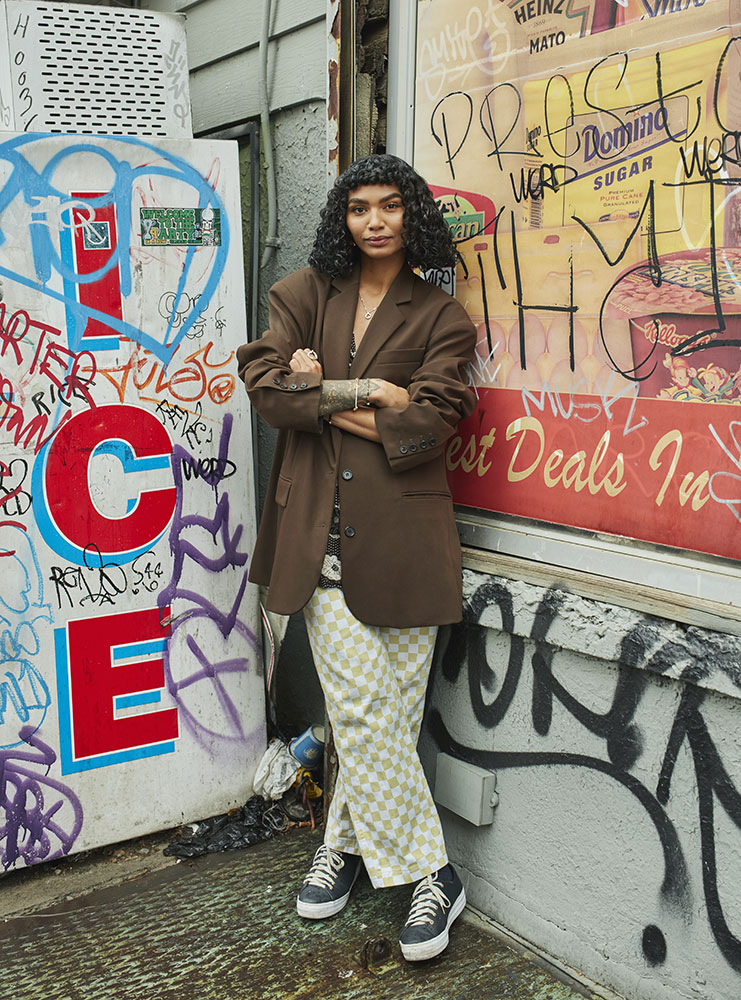
You have said that the thing that really gets you going is full bellies, and that goes back to your past relationship with hunger. So I wanted to ask you what that looked like?
I know what it’s like to be a kid who’s hungry. I think that we fixate a lot on food insecurity and food apartheid and food deserts and all this language that cloaks the real issue, which is that people are hungry. People are having to choose between paying a bill or feeding their family. That’s actually reality for one in six people, just in the U.S.
I see people in my neighbourhood who have mortgages that are US $8,000 a month, right next to someone who hasn’t eaten all day. So I think when we talk about hunger, we need to talk about discrepancies. A lot of the bureaucratic institutional leaders don’t know shit about what it is to be hungry. I feel like the hungry people keep getting hungry because the leaders in those spaces don’t actually understand what it is to go through those experiences.
—
Free shipping
This article is featured in our issue 12. Delivery is now free across Canada for all our past issues.
ORDER NOWWhat do you think gets missed? What do we lose when we don’t call the thing what it is, or when we have these bureaucracies trying to fix a problem that they have no experience with?
There’s a lot of exploitation. A lot of “Look at me, I’m doing something good.” That is not what this space needs at all. I want people to be very aware about how they give. Who are you giving for? I feel like that’s where we get equity. It’s asking and not just assuming that the neighbourhood wants what you have. You’re going into a space you don’t know, you need to ask the community, “What do you need?” Maybe they don’t need the same thing as you need. Maybe they don’t want the same thing as you want. A person who is hungry knows exactly what they’re hungry for. So you have to ask.
I think the tie to agriculture is also missing. We don’t live in agrarian societies anymore, so we’re not in touch with what actually grows out of the soil, who grows it, and how hard that is. So there’s also an education piece.
But when we talk about accountability and who is to blame, we can’t blame each other. This is an institutional problem. The system was designed to not be equitable.
For me it feels like a really uphill battle, because you can’t just make it a hunger thing. So if I’m speaking to someone who doesn’t want to hear about racism, then you don’t want to hear about how to feed people either. Because those things are tethered.
What’s it like to be constantly in conversation about the social and political dimensions of food?
It’s really expanded how I think about food, and it’s absolutely made me feel differently about what it is to eat regionally versus, like, the açai bowls that I eat in New York. I can get clams 20 minutes from here. Clams are so sustainable, and eating them is so great for the environment. The more we eat, the more we grow, and the more we grow, the cleaner the ocean. Sustainable ocean farming is so exciting for me and my palate, and for how I want to cook and talk about food.
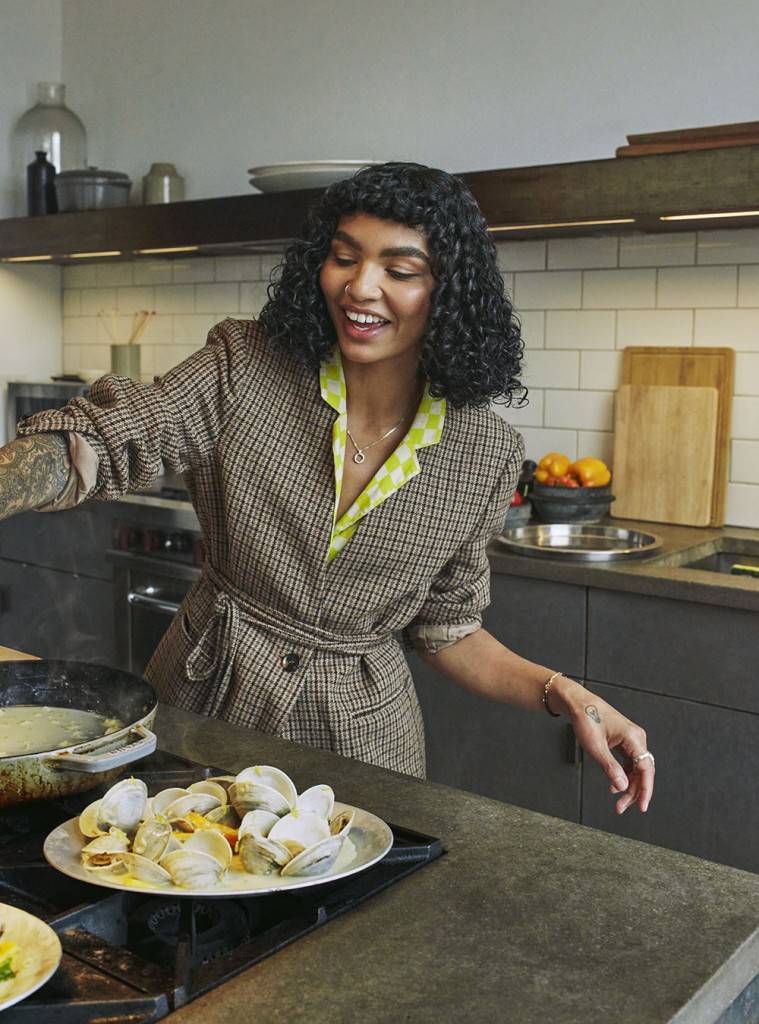
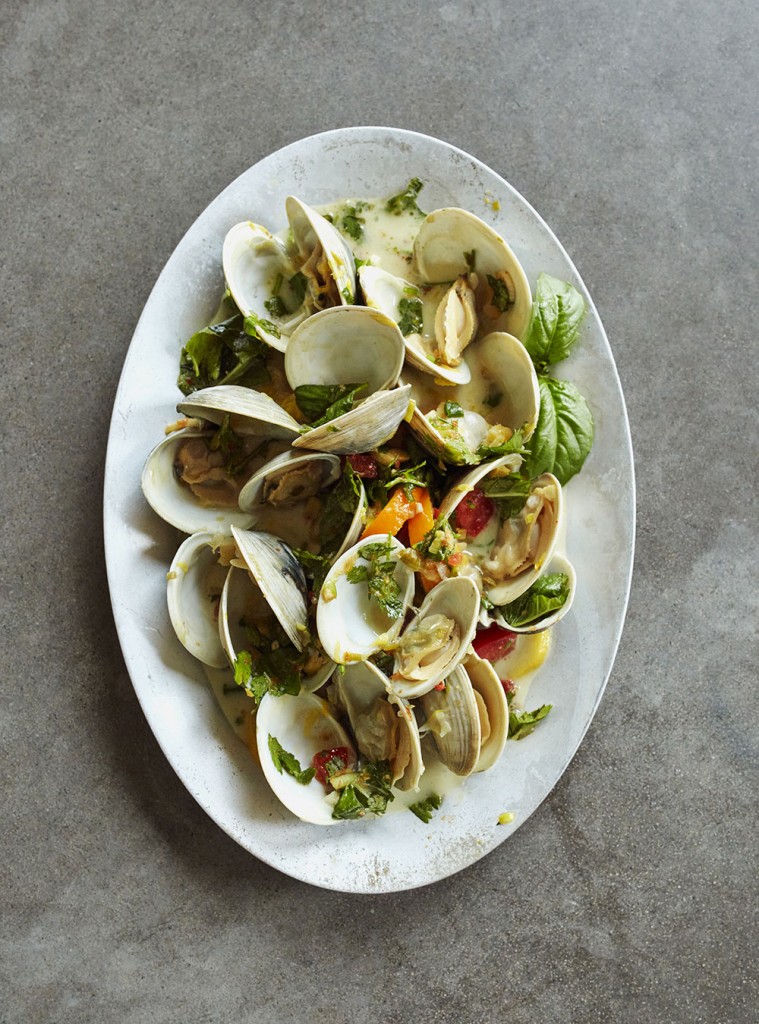
Sustainably farmed clams actually make marine ecosystems healthier. In honour of this positive feedback cycle, here’s one of Roe’s favourite ways to prepare clams.
____
Ingredients
- 1 kg clams, soaked in salty cold water for at least one hour
- 2 tablespoons olive oil
- 1 bunch scallions, diced
- 120 ml [½ cup] green olives, + 45 ml [3 tablespoons] olive brine
- 2 cloves garlic, smashed
- 1 thumb-sized piece ginger, chopped
- 1 bunch cilantro, chopped
- 1 bunch basil, chopped
- 2 lemons, sliced into rounds
- 1 orange
- 2 tomatoes, chopped
- 80 ml [⅓ cup] coconut milk
- 60 ml [¼ cup] dry white wine
- A small handful crushed nuts, any kind
- A pinch of salt
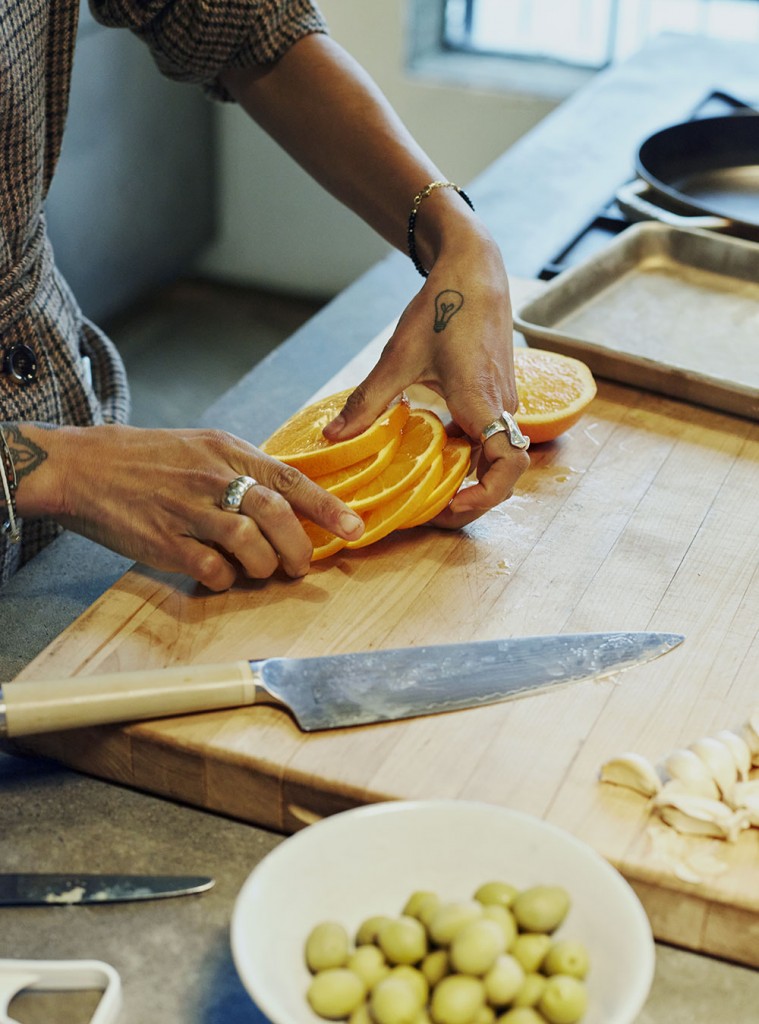
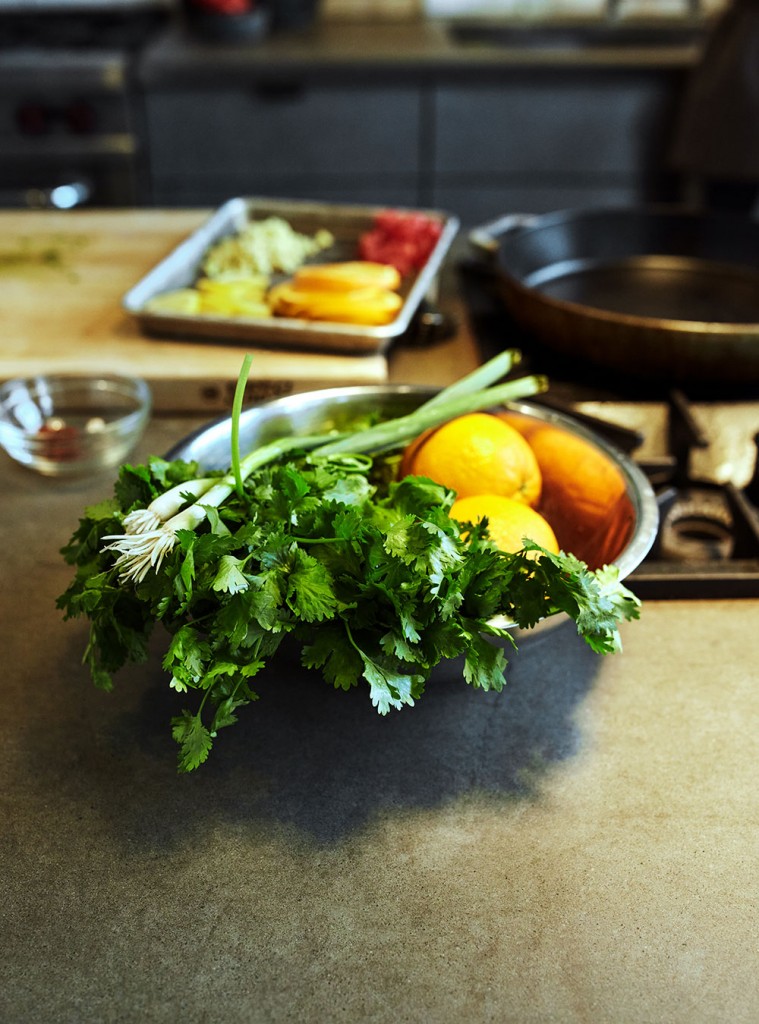
Step 1.
Add olive oil to a pan at medium heat, then add scallions, ginger, garlic, and a generous pinch of salt. Stir for one or two minutes.
Step 2.
Add the lemon slices and the clams, cover, and swirl them around in the pan. Then slice half of the orange into rounds. Add to the pan and cover again. Turn the heat to medium-high.
Step 3.
After three minutes, remove the lid and add the coconut milk and wine, then cover again for another three or four minutes.
Step 4.
To make the relish, squeeze the rest of the orange in a bowl and add a bit of the olive brine. Combine with the olives, chopped herbs and tomatoes and stir.
Step 5.
Once the clams have all opened—don’t eat any that haven’t—drizzle the relish and sprinkle the nuts. Enjoy!
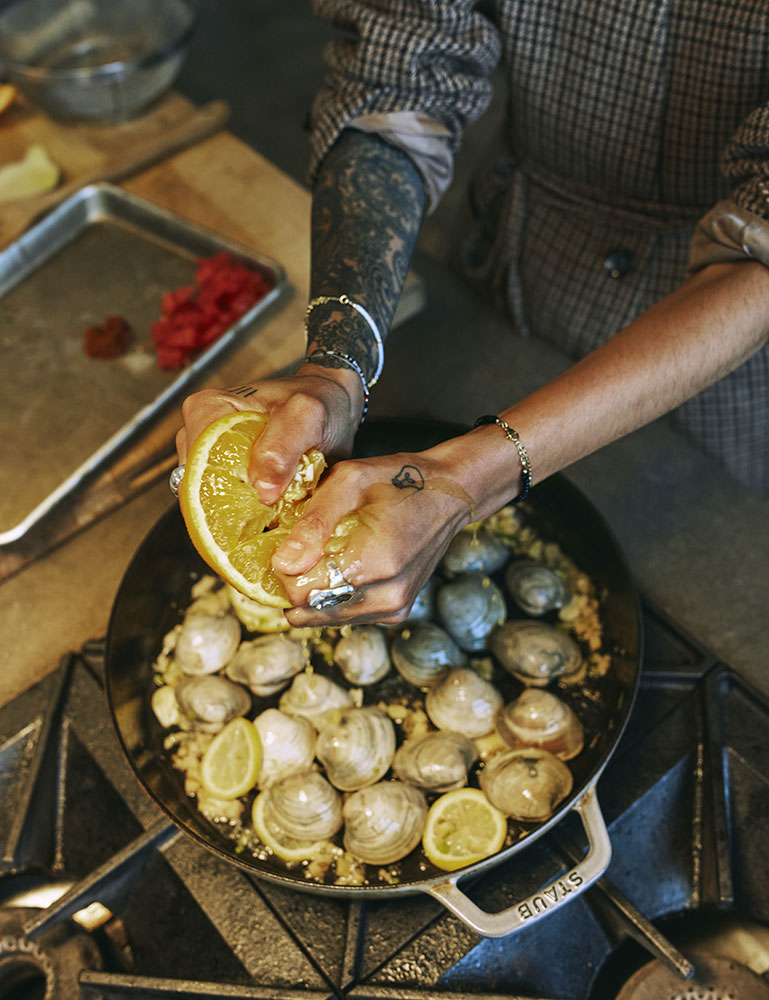
So what does the intersection of food and wellness look like for you?
Wellness is food, air, water, movement, sunlight, purpose, and community. If your wellness protocol doesn’t have all of those things, then your wellness protocol sucks.
A lot of people do things for themselves, but still in the end don’t feel well, because they have an incomplete protocol. Your protocol has to include helping others find wellness. That is the missing link. And when you start doing that, I believe that you also get that other pillar, which is purpose. And I think it’s really hard to find your purpose if you don’t ever take care of someone that isn’t yourself.
If you’re looking for purpose in your life, and you don’t feel like you have it or you don’t know what you’re meant to do, I would inject a little community care into your day or into your week. And I’ll tell you, in three months you will have a purpose.
What are sensual aspects of food that you cherish?
Everything. Sometimes the bite is like first-time skin on skin with your partner. I don’t mean having sex, I just mean skin on skin. I remember that with my own partner, years ago, the first time I touched his skin. That’s how I feel about dough. It’s alive and rising over there, doing what it does. The earth does it. That’s crazy!
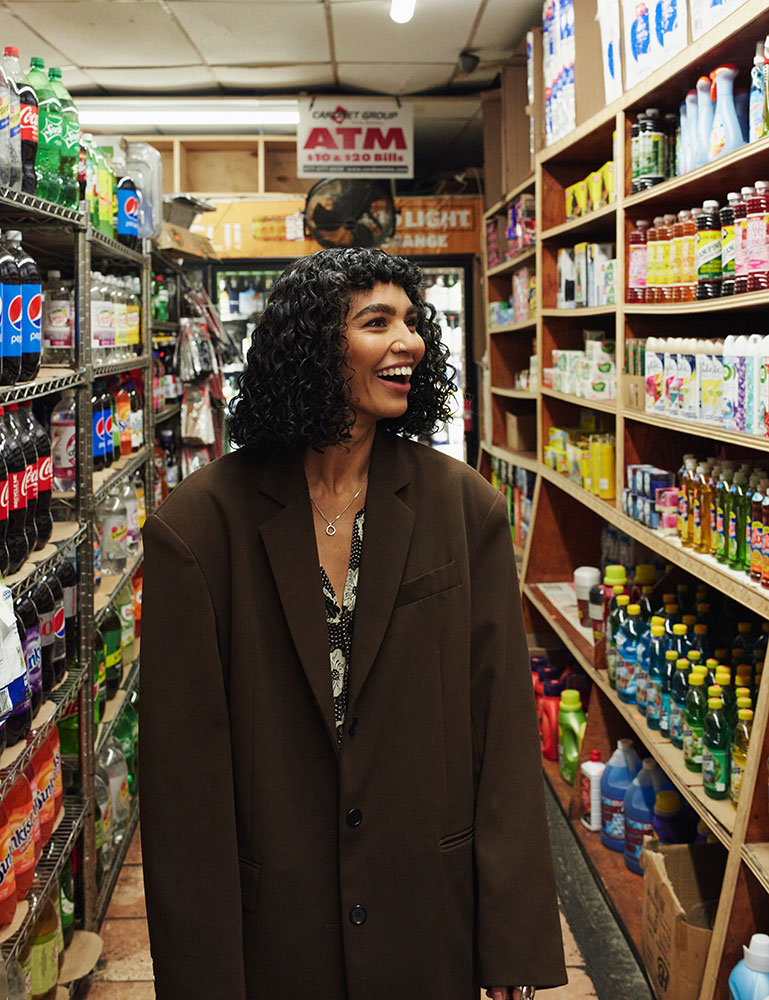
Girl, the earth made honey. The ground was like, yo, blueberries, what’s up? That’s the sexiest thing ever. When you bring that in, you cook differently.
You’re like, let me dignify this. Let me eat every morsel. Let me make extra and share it with somebody I care about, or somebody who needs it. Let’s make these blueberries really go. That is as sexy as it gets.
You often rave about mushrooms. Why do you love them so much?
So I’m from Florida originally, which is a very humid and mouldy kind of place. I remember my first experience with mould was lemons in a fruit basket. I thought it was the coolest thing ever. Then, when I was becoming a chef, mushrooms seemed to be this award-winning thing. In restaurants, people would freak out because of the amount of flavour that you could create with a mushroom: the truffles, the dried mushrooms, the hen of the woods. So my first love for mushrooms really started as a cook.
In 2016 I really started to look into the power of fungi, and I came across Giuliana Furci, who is the only female field mycologist in South America. Listening to her speak about fungi really changed my life. Fungi can teach us so much about connection and how much we need each other. They can teach us about how death is a part of the process, and that we really need to normalize conversations about death because death is coming.
I think wellness needs to have a space for death. We need to be open and talk about it. How do I feel about death? How do I dignify my life so that experiencing death doesn’t have to be this horrifying thing? And I think fungus and mushrooms can really teach us a lot about that.
The most beautiful thing a tree can do is die, because then it becomes many other things. A dying tree has up to 30,000 organisms on it. So fungi can teach us that decomposition is not disgusting. Rot is not disgusting. It’s this very important part of life.
So yes, I love mushrooms. But more than anything, I just love the narrative of symbiosis, of something that needs another thing. Humans love to separate ourselves from nature. They love to say, “I need more nature in my life.” You really should say, “I need to go home.” Because that’s where you belong. We are as nature as it gets. We have fungus and mould and bacteria all over us, just like a swamp does, just like a tree does. So fungi remind me of home.
It’s said that food is power. Do you think that’s true?
I don’t go through life looking for power. I find power in ease, in grace, in slowing down. I find empowerment in what it is to comfortably move my spine. I don’t look for power because I don’t feel like I need it. More than anything, I’m looking for freedom. I’m Nina Simone about it: freedom is to live without fear. And to live without fear means ease—your life is easy. When I have food, it’s something I don’t have to think about. I’m fed. If you have food, your life is way easier than someone who doesn’t. So to me, food is freedom, food is ease, food is no fear. That is way more important than power.
***
This interview has been edited and condensed.
Tayo Bero is an award-winning radio producer and freelance culture writer. You can find her work in publications like the Guardian, Teen Vogue, Chatelaine Magazine, and the Walrus as well as on CBC Radio.
Never Miss Another Issue
Two issues per year
25% OFF previous issues
Free Shipping in Canada